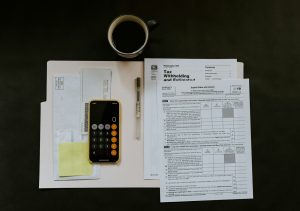It is normal to dread tax season whether you are a sole trader or a CEO, especially if accounts are not your strength. Naturally, you will want to find the most cost-effective way to pay your taxes, without necessarily being bankrupt.
If you have a small business, or if you got a promotion in the last year (and earn more taxable income) it is well worth looking at tax planning options, as these can help you to keep a few more pennies in your pocket.
How, you ask? Read on to find out!
Deductions
It is something that every self-employed individual or sole trader has to learn: the magic of taxable deductions!
Tax planning with a financial planning firm will help to identify eligible deductions, which can reduce taxable income. These are usually donations from your business (or self) to qualified charities, interest on home loans, and medical expenses. For the last one, these expenses need to exceed a percentage of your adjusted gross income, or AGI, to qualify as a deduction.
Indeed, a financial planner can help you to itemize these deductions, and you may be surprised at how much they add up to!
Taking Advantage of Tax Credits
Depending on where you live, looking into tax credits can also be helpful. These directly reduce the amount of tax owed and, they can be better for your income long-term.
Examples include child tax, education, and energy efficiency credits. The last one is aimed at people who have had solar panels installed, and have also made other energy-efficient home improvements. So, ask your financial planner if any tax credits apply to your situation.
Timing Income and Expenses
Interestingly, you can time your income and expenses to optimize tax liabilities.
On your tax return, you can postpone income to the next year if you’re expecting to be in a lower tax bracket. This is perfect if you have had a tougher year financially! You can also opt to accelerate expenses, by prepaying deductible expenses like property taxes or medical bills, which will maximize deductions in the current tax year.
Tax-Advantaged Accounts
There are many accounts that offer tax benefits, which can reduce the amount of taxable income that you have.
These are typically retirement accounts, such as contributions to an IRA or a 401(k), as well as a health savings account, or HSA. There are also flexible spending accounts, which allow pre-tax contributions that cover medical or childcare costs. Be careful, though, as a 401(k) has set amounts you can pay in (depending on your age), and if you are looking into a solo 401(k), other restrictions may apply, which can impact the amount of tax you pay come tax season.
Remember, it is always wise to check if you are eligible for tax benefits when you are looking into tax planning. So, always consult with a financial advisor or planner to help assess your tax bracket and explore options that may be suitable for you.








